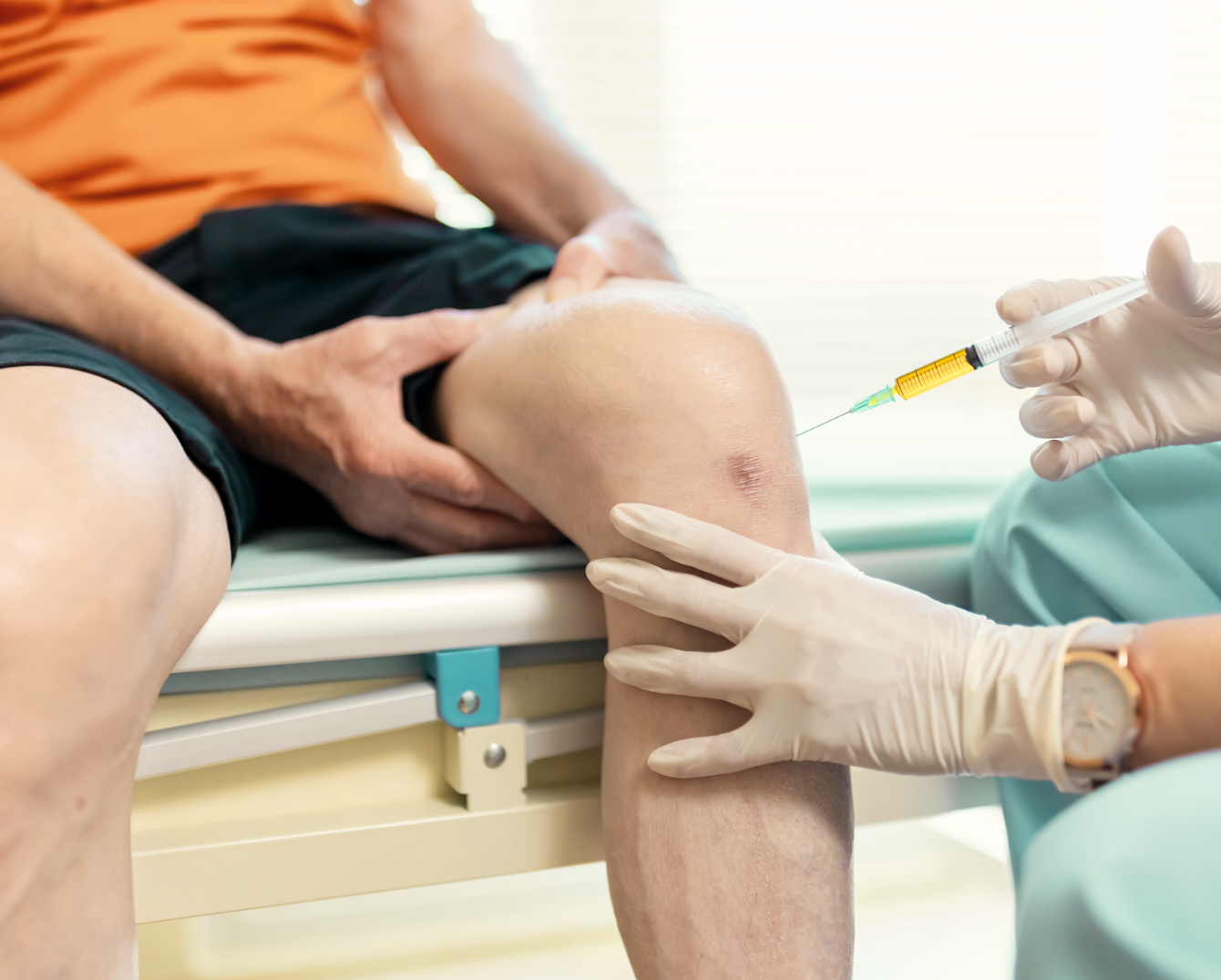

Prolotherapy, short for “proliferative therapy,” is a minimally invasive treatment designed to stimulate the body’s natural healing mechanisms in areas affected by chronic pain or injury. The technique involves injecting a solution directly into weakened or damaged ligaments, tendons, and joint capsules to initiate an inflammatory response. This controlled inflammation encourages the growth of new tissue, such as collagen and connective fibers, ultimately strengthening and stabilizing the affected area.
The combination of PRP, dextrose has further advanced the effectiveness of prolotherapy, making it a powerful and multifaceted regenerative approach for chronic pain relief.

Platelet-rich plasma, or PRP, is a concentrated solution derived from the patient’s blood. The process involves drawing a small amount of blood, which is then spun in a centrifuge to separate the platelet-rich plasma from other blood components. Platelets are rich in growth factors, cytokines, and proteins that play a crucial role in the body’s healing process.
When injected into damaged tissues, PRP releases these growth factors and signaling molecules, triggering a regenerative response. This process accelerates tissue repair, increases collagen production, and promotes the formation of new blood vessels, enhancing the body’s ability to heal itself.

Dextrose, a type of sugar, is often combined with PRP in prolotherapy injections. Dextrose acts as an irritant, stimulating the immune system and promoting an inflammatory response at the injection site. This controlled inflammation serves as a signal to the body to initiate the tissue repair process.
The combination of PRP and dextrose has a synergistic effect, amplifying the regenerative potential of prolotherapy. PRP provides the essential growth factors and cytokines, while dextrose enhances the inflammatory response, optimizing tissue healing.

Platelet-rich plasma, or PRP, is a concentrated solution derived from the patient’s blood. The process involves drawing a small amount of blood, which is then spun in a centrifuge to separate the platelet-rich plasma from other blood components. Platelets are rich in growth factors, cytokines, and proteins that play a crucial role in the body’s healing process.
When injected into damaged tissues, PRP releases these growth factors and signaling molecules, triggering a regenerative response. This process accelerates tissue repair, increases collagen production, and promotes the formation of new blood vessels, enhancing the body’s ability to heal itself.

Dextrose, a type of sugar, is often combined with PRP in prolotherapy injections. Dextrose acts as an irritant, stimulating the immune system and promoting an inflammatory response at the injection site. This controlled inflammation serves as a signal to the body to initiate the tissue repair process.
The combination of PRP and dextrose has a synergistic effect, amplifying the regenerative potential of prolotherapy. PRP provides the essential growth factors and cytokines, while dextrose enhances the inflammatory response, optimizing tissue healing.

Exosomes are small vesicles secreted by various cells in the body, including stem cells. These tiny packages contain a myriad of bioactive molecules, including proteins, nucleic acids, and growth factors. Exosomes play a crucial role in cell-to-cell communication and tissue regeneration.
In prolotherapy, exosomes derived from mesenchymal stem cells (MSCs) are used to augment the healing process. When introduced into the damaged area, exosomes stimulate cellular repair and modulate inflammation, leading to enhanced tissue regeneration.


begin your journey to health now
Have general questions before booking your initial consultation? Feel free to schedule for a complimentary 15-minute Discovery Call with one of our doctors first.
Maven Wellness
(Inside 424 Cosmetic Dermatology)
15525 Pomerado Road
Building C-1b
Poway, CA 92064